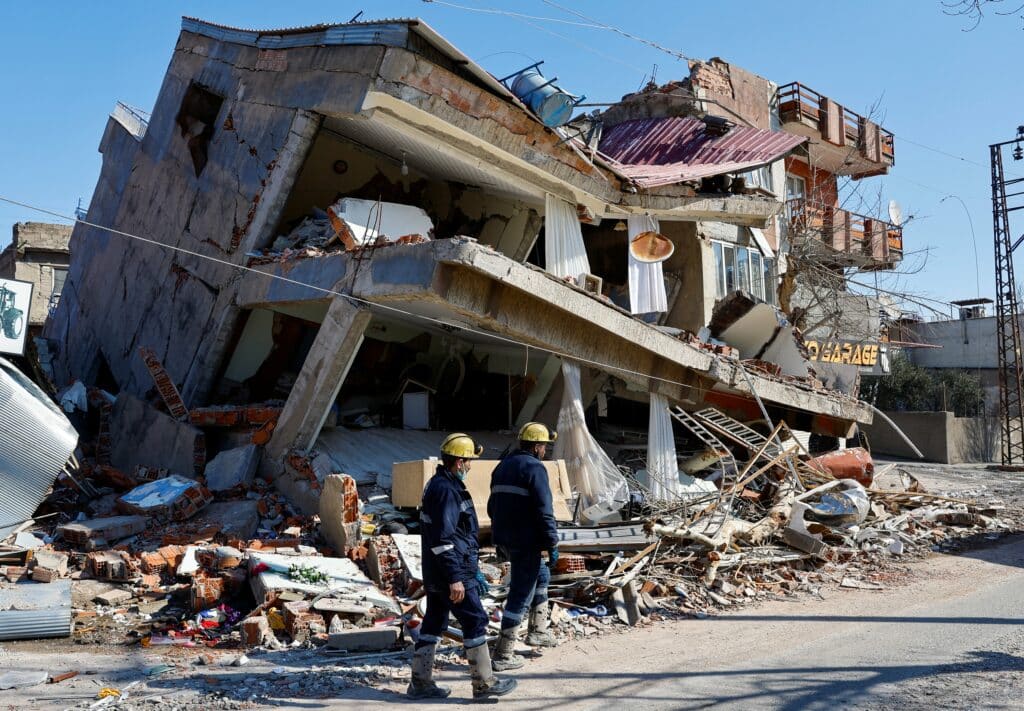
Australian representatives of the two largest Catholic communities in war-torn Syria will call on the Federal Government to halt sanctions on the country, to improve the flow of aid after Monday’s devastating earthquakes.
As the death toll from the over-seven magnitude earthquakes continued to soar past 20,000 across parts of southern Turkey and northern Syria, Monsignor Basil Sousanian and Bishop Robert Rabbat shared with The Catholic Weekly their concerns that Syria won’t get the help it desperately needs.
More than a decade of civil war, ongoing western economic sanctions and complex internal and regional divisions are hampering the initial rescue and aid efforts in the affected areas.
The Government on Tuesday pledged an initial $10 million in humanitarian assistance to the affected areas, with $7 million earmarked for Turkey, but the prelates were not confident that any of the offered support would reach people who need it in Syria.
Monsignor Sousanian is the patriarchal vicar general for the Armenian Catholic Church in Australia and is currently in Damascus helping to coordinate aid supplies for Aleppo and Latakia.
“I want to see the sanctions on Syria stopped. First of all $10 million is nothing compared to the need now. And secondly, all of this money will go to Turkey,” the monsignor said.
“There is assistance coming here from a dozen Arab countries, mainly clothes, food and other things the people need immediately.
“But unfortunately nothing from the larger countries like Australia, Europe and America because of the sanctions. They have stopped intervening [in Syria] and that is unfortunate for the people here who are now in great need.
“After 12 years of war the country is already devastated and now with this earthquake it will see many more problems.”
Bishop Rabbat is the eparch of the Melkite Greek Catholic Eparchy of Saint Michael Archangel in Sydney and president of the Australasian-Middle East Christian Apostolic Churches.
He said many community members here are worried about relatives and friends in Aleppo and other cities affected, but with the crisis on top of ongoing electricity shortages, news has been slower to get out of Syria than Turkey.
“We’re praying for the souls of the departed, for the bereaved and for speedy recovery of the wounded and hopefully humanity helps with this situation,” he said.
“We hear that some nations are not sending help to Syria for political reasons and it breaks our hearts.
The Turks and the Syrians are all human beings at the end of the day and every wounded person needs help. This is one of those moments where we must transcend our issues and as humans reach out to all those most in need.
“We hope the whole world and certainly our Australian government and Christians in Australia will do their best to help us.
We are going to reach out to them because while our government has pledged $10 million we need to investigate where that is going to go and how we can make sure that some of this goes to Syria.”
Sally Thomas, Caritas Australia’s humanitarian lead for the Middle East, said that in her previous work with northern Syrians she had found them to be a “very resilient population” but now face enormous challenges sheltering, feeding and getting medical aid to people, in addition to ongoing fuel shortages and freezing conditions.
“It’s not a matter of who needs what more than the other, it’s definitely a matter of ensuring that everybody is receiving assistance,” she said.
“Prior to the earthquake Syria has been a very complex and complicated region for humanitarians to gain access to.
“One of the challenges that north west Syria has is the speed at which huge amounts of resources are able to access people. It can be very time consuming, so it will be a very complicated situation at the moment just to try and get things across the border.”
Bishop Rabbat said the churches will also establish their own appeal and will learn from people in the affected cities what they need in the coming weeks and months.
“It’s important that we offer much support so that they don’t give up and say we have been forgotten, we are praying a heavy price for something we did not do.”
The Federation of Catholic Bishops Conferences of Oceania, and Maronite Bishop Antoine-Charbel Tarabay, have both made statements calling for more aid to be sent to the region.
